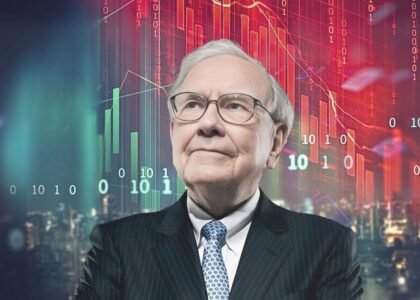Money is everywhere.
We work for it.
We stress about it.
We dream of having more of it.
But here’s the truth that might surprise you:
Success with money isn’t about intelligence — it’s about behavior.
This powerful idea comes from The Psychology of Money by Morgan Housel, a bestselling book that challenges everything we think we know about wealth.
- Let’s explore this through two real-life stories — one of a millionaire who lost everything, and one of a janitor who died a multi-millionaire.
Who’s More Likely to Die Rich?
A Harvard-educated investment banker with luxury cars and mansions…
or a janitor who worked at a gas station his whole life?
Most people would say the banker.
But the answer might surprise you.
Let’s meet them.
Richard Fuscone – The Executive Who Went Bankrupt
Richard Fuscone was a top executive at Merrill Lynch.
He lived a lavish lifestyle, full of art, fine wine, and high-stakes investments.
But during the 2008 financial crisis, he lost it all.
Why?
- He borrowed too much.
- He took on risky investments.
- He lived beyond his means.
Despite his education and career, Fuscone proved that financial knowledge doesn’t guarantee financial wisdom.
Ronald Read – The Janitor Who Left Behind $8 Million
Ronald Read lived simply.
He worked as a janitor and gas station attendant in Vermont.
He never flaunted his money, drove old cars, and rarely spent on luxuries.
But he did one thing exceptionally well:
He consistently invested in quality companies and never touched the money.
When he passed away, he stunned everyone by donating $8 million to a local hospital and library.
No fancy job. No finance degree.
Just steady saving, patience, and discipline.
Key Takeaway: Behavior > Brilliance
These stories highlight a powerful truth:
Financial success depends more on your habits than your IQ.
Ronald Read didn’t try to beat the market — he just stayed consistent.
Richard Fuscone tried to outsmart the market — and paid the price.
You don’t need to be brilliant.
You need to be disciplined and patient.
Why It’s Called “The Greatest Show on Earth”
Morgan Housel calls personal finance “The Greatest Show on Earth” because it’s driven by:
- Emotion
- Habits
- Upbringing
- Fear and greed
- Personal experiences
Millions of people make financial decisions every day — and most of them aren’t logical.
They’re emotional.
Some overspend to feel successful. Others save excessively out of fear.
Many chase the next big win — and lose it all.
We think we’re rational.
But really, we’re shaped by our own money stories.
How You Can Apply This Lesson
You don’t need:
- A finance degree
- Insider tips
- A high-paying job
You do need:
- Good behavior
- Long-term consistency
- Trust in the power of compounding
Stay in the game long enough — and your money will grow.
Final Thought: Are You Living Like Richard or Ronald?
This is just the introduction to The Psychology of Money, and it already flips traditional financial advice on its head.
If this resonated with you, stick around for our next deep dive:
Chapter 1 – “No One’s Crazy” (coming soon!)
Now let me ask you:
Are you living like Richard Fuscone — chasing status and risking it all?
Or are you building quietly, like Ronald Read?
Let me know in the comments.







